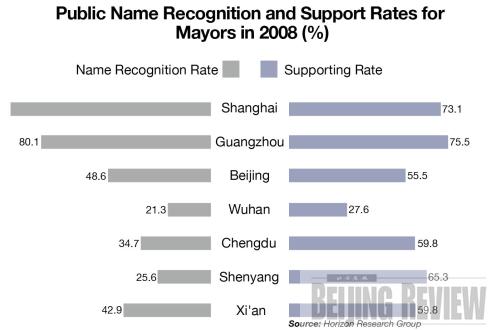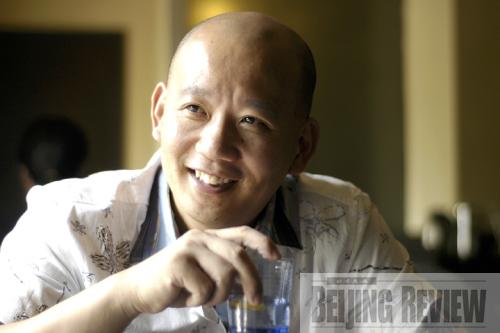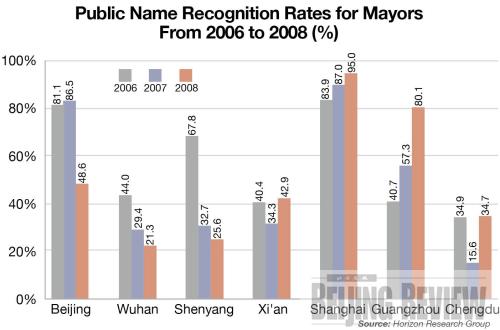|
 |
|
STRENGTH IN UNITY: More than 100 Shanghai residents volunteer to complete a painting entitled "Building a Harmonious Society" on a wall. The government policies of putting people first and building a harmonious society are considered conducive to the development of policy surveys ZHANG HAIFENG |

Zhang Hui, a director at leading opinion research firm Horizon Research Group, still recalls her nervousness on the day six years ago when her company published poll results showing public confidence in the mayors of seven major cities in China.
In 2002, when the unprecedented poll was released on a trial basis the year before, only one magazine reported on it due to its sensitivity. "No newspaper or magazine dared to report it except China Newsweek, a Beijing-based magazine," said Horizon's founder and Chairman Yuan Yue.
 |
|
"China's current political environment, featuring the new policies of putting people first and building a harmonious society, is conducive to the development of policy surveys." —Yuan Yue, founder and Chairman of Horizon Research Group (COURTESY OF HORIZON) |
Zhang, who worked on the poll project, compared the fallout of releasing the research to "dropping a bomb out there." Her attention was centered that day on the project manager's desk, where a telephone sat. She said the phone rang incessantly with calls from mayors' secretaries, some questioning the reliability of the results and some asking for specifics on the information. The manager asked Zhang to prepare data that proved a mayor's popularity or unpopularity when confronted by a secretary.
"I couldn't afford to make even a tiny mistake in preparing the statistics since the topic was so sensitive," Zhang said.

Yuan said during the poll's first year, the company surveyed the public in 10 cities but released results for only the top eight. "We didn't want to cause enough controversy to get our survey banned during its infancy," said Yuan. When news portal Sina.com quoted the China Newsweek article, the story triggered enormous interest from people on the Internet. "Around 60 percent of netizens' comments accused us of shilling for the government; more than 30 percent said they never knew the public was allowed to evaluate mayors, which was really cool; and the remaining 10 percent were trying to guess what the two unpublished cities were," Yuan said.
Yuan, a former government official himself, said the criticisms didn't make him doubt the significance of the groundbreaking survey. "As we all know, polls on political leaders are core indices of a democracy," said Yuan.
|
